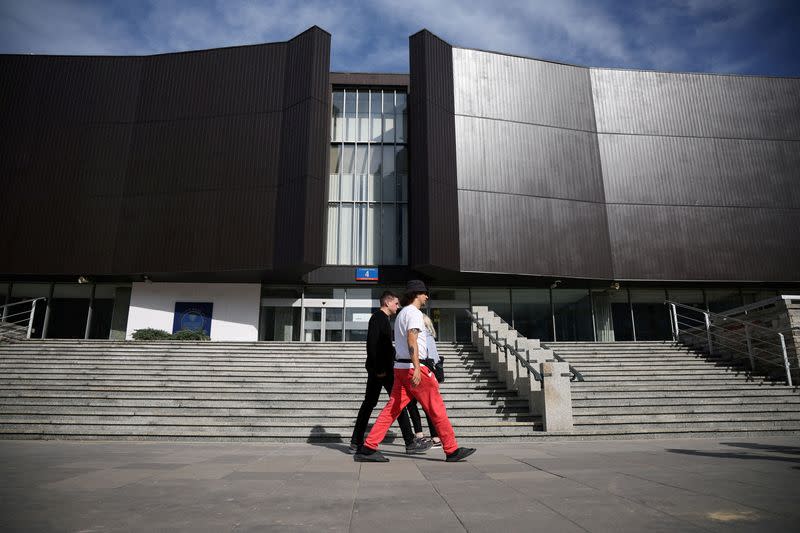Polish central bank stuns with 75 bps rate cut, zloty plunges

By Anna Koper
WARSAW (Reuters) - Poland's central bank cut its main interest rate by 75 basis points to 6.00% on Wednesday, in a shock decision ahead of October elections that sent the zloty currency tumbling against the euro.
A narrow majority of analysts polled by Reuters had expected a 25-bps cut, but markets and economists alike were blindsided by the scale of the easing delivered. The zloty plunged 1.5% to its weakest level since May and banking stocks dropped over 5%.
The National Bank of Poland (NBP) said it took the decision because it expects inflation to return to target faster than originally expected.
"In the Council's assessment, recently incoming data point to a weaker demand pressure than previously expected, which will contribute to a faster return of inflation to the NBP inflation target," it said in a statement.
It said that the adjustment to interest rates would be "conducive to meeting the NBP inflation target in the medium term".
NBP Governor Adam Glapinski had previously signalled that a rate cut could come in September if inflation fell to single digits.
While inflation continued to fall in August, it fell slightly short of this target, coming in at 10.1%, according to a flash estimate.
Economists lined up to warn of the inflationary risks of such a drastic shift in monetary policy.
"We have already said that it is too early for a rate cut, and certainly such an aggressive rate cut, when the prospects (of a slowdown) in inflation are still distant," said Piotr Bielski, director of the economic analysis department of Santander Bank Polska.
"I think that the market will be pricing in the risk of inflation becoming entrenched and in general this will make it difficult for inflation to return to the target."
J.P. Morgan analysts said in a note that it is appropriate for central banks to be cautious, given the significant uncertainty about inflation prospects in this cycle, not just in Poland but globally.
"If cutting rates at this point was debatable, cutting in size is even more so," they wrote.
Wojciech Paczos, a research economist at Cardiff University, said that the move could have been influenced by political considerations, as parliamentary elections are scheduled for Oct. 15.
"I assess that there is a risk of a trend reversal and new inflation increases, as well as a risk of reversing this decision after the elections and returning to interest rate hikes," he wrote on X, formerly known as Twitter. "I estimate that this is a hundred percent political decision, not dictated by economic logic."
Glapinski is an ally of the ruling Law and Justice (PiS) party, with links to its leader Jaroslaw Kaczynski that go back decades.
"The Monetary Policy Council makes decisions independently of the government. The composition of the council is diverse and is elected by various state institutions. The government has no say in council decisions. Thus, the allegations made by critics are unfounded," the government spokesman said.
(Reporting by Anna Koper, Pawel Florkiewicz, Alan Charlish, Anna Wlodarczak-Semczuk, Karol Badohal; Additional reporting by Marc Jones, editing by Justyna Pawlak, Nick Macfie, Sharon Singleton and Marguerita Choy)

 Yahoo Finance
Yahoo Finance 